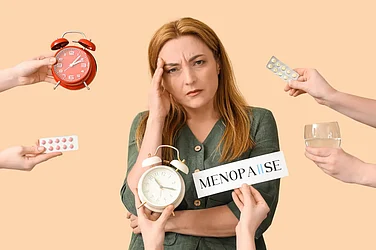Hair loss, medically termed alopecia, is a common concern affecting millions worldwide. While genetics, hormonal changes, and medical conditions play significant roles, emerging research suggests that diet may also influence hair health and loss.1
Proteins: Because the hair shaft is composed almost entirely of protein, namely, keratin, the protein component of the diet is critical for the production of normal, healthy hair. Constituent amino acids such as cysteine and methionine, from which the hair follicle can build up the keratin, can be consumed.2
Iron: Iron deficiency is a common cause of hair loss, particularly in certain groups like premenopausal women and vegans. Replenishing iron stores through dietary modification and supplementation may prevent hair loss and promote regrowth.3,4
Carbohydrates: The rate of mitosis is sensitive to the calorific value of the diet, provided mainly by carbohydrates. Calorie restriction affects the energy supply to the hair follicle, which can lead to hair loss.2,4
Vitamins: Vitamins A, C, and E act as antioxidants, shielding hair follicles from oxidative stress. Biotin and niacin, part of the B vitamin family, aid hair growth and deter thinning. Adequate vitamin D levels are vital for healthy follicles. Supplementation has shown hair regrowth benefits for those deficient.4
Other Micronutrients: Adequate zinc levels are vital for immune function and protein synthesis in hair follicles, aiding growth and recovery. Selenium deficiency and oxidative stress are additional factors associated with hair loss.3,4
To conclude,
It is a well-evidenced fact that the quantity and quality of hair are closely related to the nutritional state of an individual.2 If you think you may be experiencing hair loss due to a nutrient deficiency, talk with a healthcare professional. They may suggest you get a blood test to assess your micronutrient levels and rule out deficiencies.


























